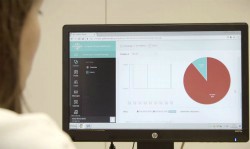Safe antipsychotic meds for children
CD is a major public health concern as social, academic or occupational functioning is significantly impaired. The use of psychostimulants and other antipsychotics to treat CD was reduced because of undesirable neurological side-effects and efficacy issues. Risperidone and aripiprazole are the drugs of choice, but, to date, there is no evidence-based indication for their use for CD treatment in normal-IQ children and adolescents. The EU-funded PERS(opens in new window) (Paediatric European risperidone studies) project intended to carry out clinical studies to bridge gaps in knowledge regarding endocrine/metabolic side-effects, therapeutic effects, long-term tolerance and safety of such drugs. Significant inroads were made towards conducting clinical trials. The study protocols were finalised, and the case report and informed consent forms were prepared. However, the goal of obtaining a paediatric-use marketing authorisation for CD treatment with risperidone was not achievable as they were unable to conduct the clinical trials. This was due to the test product being recalled prior to distribution and trial initialisation during the second project period. Risperidone and aripiprazole are off-label antipsychotics with sparsely described safety data. PERS members proceeded with their multinational investigator-driven observational study and successfully recruited over 400 patients with CD, schizophrenia, bipolar disorder, autism, obsessive-compulsive disorder, attention deficit hyperactivity disorder and Tourette's syndrome. Researchers collected substantial data on the adverse events associated with the use of antipsychotic drugs in the paediatric population. Impressive is the generated database, which contains extensive information on clinical, lifestyle, endocrinologic, growth and laboratory measures. Some key preliminary findings include the fact that long-term risperidone usage affected liver function and increased prolactin levels as well as body weight. Furthermore, antipsychotic drugs such as olanzapine and quetiapine also increased body mass index and had cardiometabolic side-effects. However, discontinuing drugs significantly decreased weight, lowered waist circumference and body mass index, and improved metabolic outcomes. PERS has increased evidence-based knowledge on the safety and efficacy of atypical antipsychotics in children and adolescents. Their extensive dissemination of study findings should aid in developing better guidelines for the pharmacological management of psychiatric disorders in children. Ultimately, this will improve the quality of life for such patients and their families.







